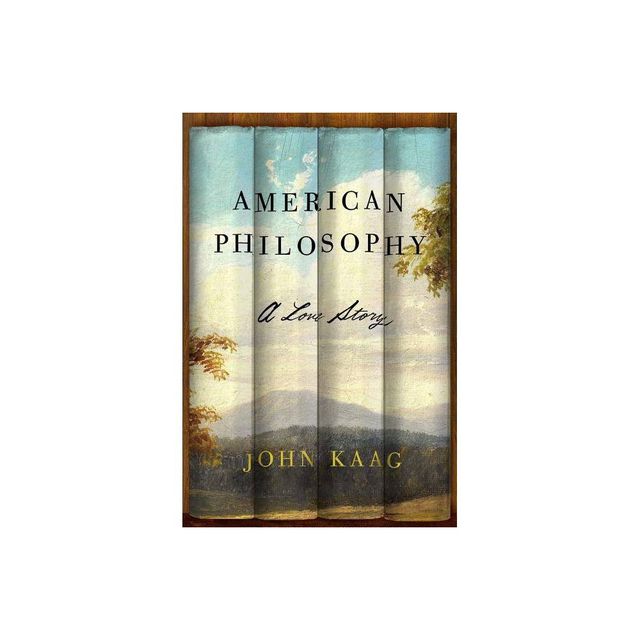Home
Frontiers in American Philosophy: Volume I
Loading Inventory...
Barnes and Noble
Frontiers in American Philosophy: Volume I
Current price: $22.95


Barnes and Noble
Frontiers in American Philosophy: Volume I
Current price: $22.95
Loading Inventory...
Size: OS
*Product Information may vary - to confirm product availability, pricing, and additional information please contact Barnes and Noble
To push the edges of the known, to look at the accepted in novel ways, is indeed to stand at the frontiers of a field. In
Frontiers in American Philosophy
thirty-five contemporary scholars explore classical American thought in bold new ways.
An extraordinary range of issues and thinkers is represented in these pagesfrom such core themes as metaphysics and social philosophy, which receive primary attention, to some consideration of American philosophers' technical accomplishments in mathematical logic and philosophical analysis.
The authors also offer new perspectives on the work of the leading American philosophers, including George Herbert Mead, William James, John Dewey, Charles Sanders Peirce, and Emma Goldman.
Not surprisingly perhaps, a great deal of the discussion revolves, either directly or indirectly, around that great axis of intellectual issues commonly known as the "realism/idealism" controversy. It seems fitting that so much attention is devoted to the possibility of some sort of middle position between "external realism" and its antipode in some form of relativistic subjectivism. For, in the last analysis, such a middle position is for the American philosophers the core meaning of "pragmatism.”
Frontiers in American Philosophy
thirty-five contemporary scholars explore classical American thought in bold new ways.
An extraordinary range of issues and thinkers is represented in these pagesfrom such core themes as metaphysics and social philosophy, which receive primary attention, to some consideration of American philosophers' technical accomplishments in mathematical logic and philosophical analysis.
The authors also offer new perspectives on the work of the leading American philosophers, including George Herbert Mead, William James, John Dewey, Charles Sanders Peirce, and Emma Goldman.
Not surprisingly perhaps, a great deal of the discussion revolves, either directly or indirectly, around that great axis of intellectual issues commonly known as the "realism/idealism" controversy. It seems fitting that so much attention is devoted to the possibility of some sort of middle position between "external realism" and its antipode in some form of relativistic subjectivism. For, in the last analysis, such a middle position is for the American philosophers the core meaning of "pragmatism.”


















